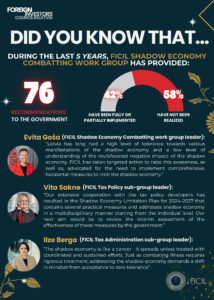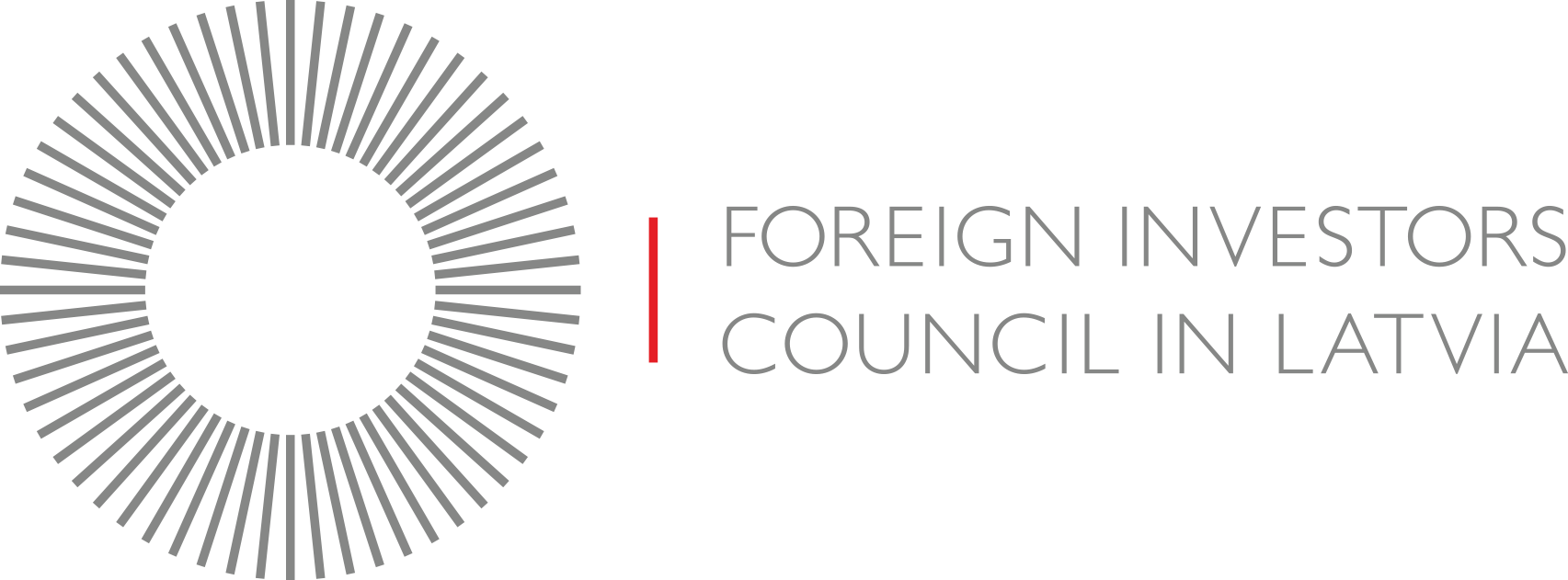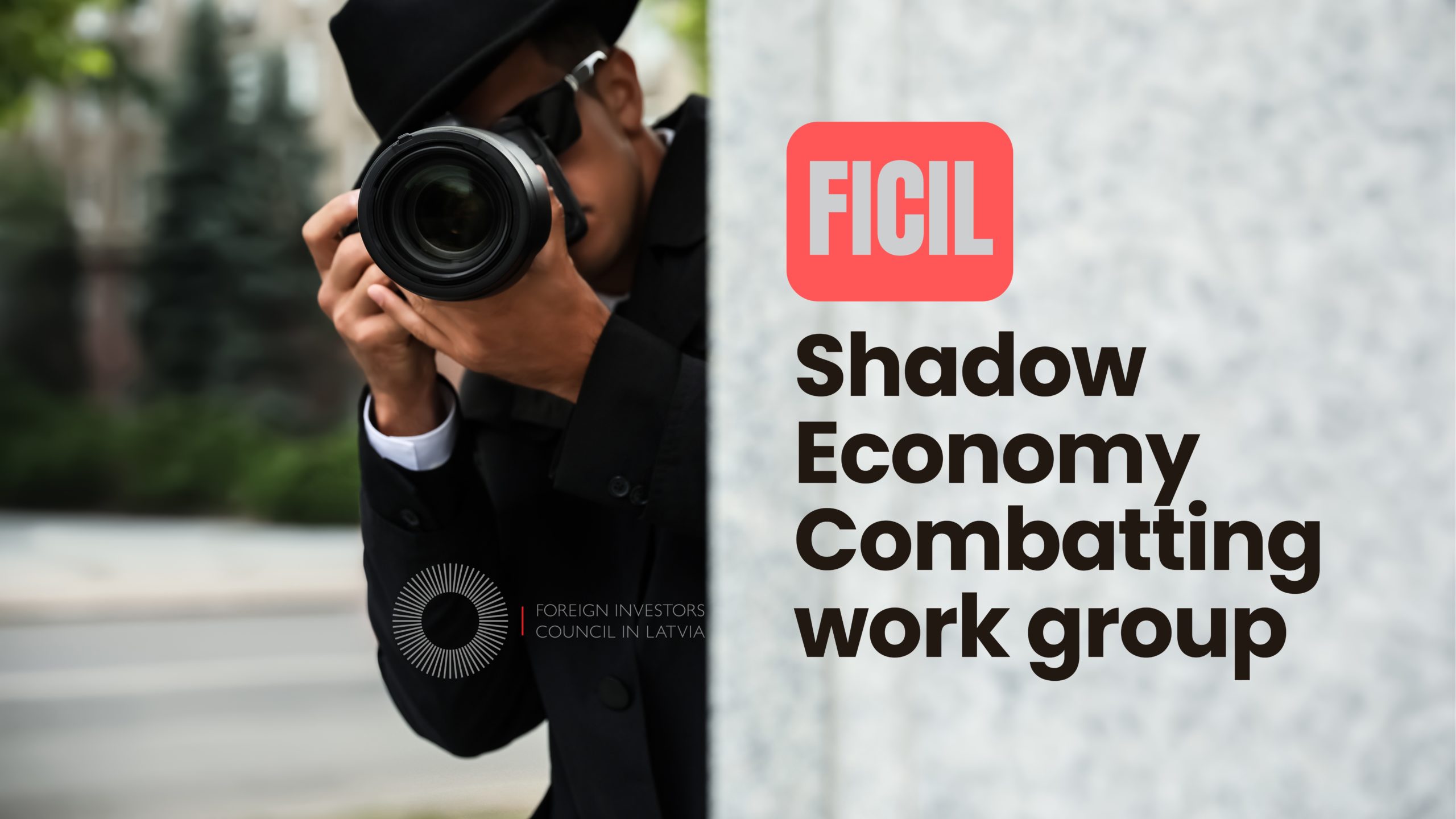For over 25 years, the Foreign Investors’ Council in Latvia (FICIL) has been on a mission to combat the shadow economy – a significant challenge to Latvia’s economic development. Through sustained collaboration with state institutions and business community, FICIL has played a pivotal role in addressing the adverse effects of tax evasion, corruption and money laundering. Central to this initiative is the FICIL Shadow Economy Combatting Work Group, chaired by Evita Goša (Environmental and Legal Director at Schwenk Latvija), which unites two specialized sub-groups. The Tax Policy sub-group, led by Vita Sakne (Director of PwC Tax Advisory), focuses on developing effective and transparent tax policies, while the Tax Administration sub-group, headed by Ilze Berga (Head of Tax at KPMG), concentrates on improving tax enforcement and administrative efficiency. Together, this team drives reforms that enhance fairness and transparency across Latvia’s economic landscape.
Latvia’s shadow economy has long posed a serious challenge to the development of a sustainable and competitive business environment. Tax evasion, fraud, corruption and other illegal activities have been undermining the country’s fiscal health, eroding investor confidence and creating unfair competition for businesses that operate within the legal framework. Ilze Berga emphasizes: “The shadow economy is like a cancer – it spreads unless treated with coordinated and sustained efforts. Just as combating illness requires rigorous treatment, addressing the shadow economy demands a shift in mindset from acceptance to zero tolerance”. FICIL has been persistently pushing for tax policy reforms, advocating for stronger enforcement mechanisms to close tax evasion loopholes and simplification of tax compliance for businesses. We have worked to combat the practice of ‘envelope wages’, promoted reforms in the personal income tax system, suggested solutions to reduce the feeling of impunity and to motivate tax compliance. The consistent efforts and practical suggestions of the Shadow Economy Combatting Work Group have been reducing the administrative burden, while encouraging transparency, which, as a result, have contributed to creating a healthier and fairer business environment in Latvia. We are proud of great collaboration with the key stakeholders, including the State Revenue Service (SRS), the Ministry of Finance and the Financial Intelligence Unit (FIU).
Evita Goša notes: “Latvia has long had a high level of tolerance towards various manifestations of the shadow economy and a low level of understanding of the multifaceted negative impact of the shadow economy. FICIL has taken targeted action to raise this awareness, as well as, advocated for the need to implement comprehensive, horizontal measures to limit the shadow economy. We believe that zero tolerance towards the shadow economy should become a matter of course and everyday life for any company and person in Latvia. We will continue to work tirelessly towards achieving this goal.”
During the last 5 years, we have provided 76 recommendations to the government. As of January 2025, 42% of our recommendations have been fully or partially implemented, while 44 recommendations (58%) have not been realized. “Our extensive cooperation with the tax policy developers has resulted in the Shadow Economy Limitation Plan for 2024–2027 that contains several practical measures and addresses shadow economy in a multidisciplinary manner starting from the individual level. Our next aim would be to review the interim assessment of the effectiveness of these measures by the government”, – states Vita Sakne.
Over the years, our work has yielded significant progress. The regular collaboration between the Work Group and the SRS has been particularly important in this process and our contribution has not gone unnoticed. As Baiba Šmite-Roķe, Director General of the State Revenue Service, puts it:
“The Foreign Investors’ Council in Latvia has been a long-standing cooperation partner of the State Revenue Service, a reliable and professional advisor. Over the years, we have worked effectively together on various issues and initiatives. It is particularly important that we share a common understanding and desire at the national level to promote sustainable, transparent business practices and foster fair competition.
You serve as a valuable link between us, as the local tax and customs administration, and foreign investors from various sectors who wish to start and grow their businesses in our country responsibly. In doing so, they create jobs for our citizens, bring financial contributions and innovation to Latvia’s economy, and strengthen a culture of integrity and social responsibility in business both in Latvia and across the Baltic region.
We highly appreciate your constant readiness for active and open dialogue on the necessary improvements and support we can offer in the areas of taxation and customs, to more swiftly curb the manifestations of the shadow economy and collectively improve the investment climate in Latvia. This will, in turn, strengthen our country’s competitiveness by attracting and retaining investments in Latvia!“
As we look to the future, FICIL will continue to play a pivotal role in shaping policies that reduce the shadow economy and promote fair competition. Our commitment to fostering a transparent, accountable business environment in Latvia remains as strong as ever. We believe that by working together with government institutions, businesses and foreign investors, we can create a more prosperous and fairer Latvia for all!



